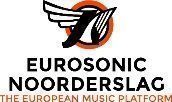
-
 publication: 16 January 2017
publication: 16 January 2017
AIHR Research Group Sustainability in Hospitality and Tourism
Presenting the report of the CELTH project 'Sustainable Strategies for Events' at Eurosonic Noorderslag on Saturday 14 01 2017
By Elena Cavagnaro
The European Production Innovation Conference (EPIC) 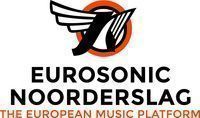 takes place during Eurosonic Noorderslag, a festival that is annually held in Groningen. Thanks to NHTV colleague Marisa de Brito and the GreenEvents organization, we were able to present the results of the CELTH project 'Sustainable Strategies for Events' at EPIC.
takes place during Eurosonic Noorderslag, a festival that is annually held in Groningen. Thanks to NHTV colleague Marisa de Brito and the GreenEvents organization, we were able to present the results of the CELTH project 'Sustainable Strategies for Events' at EPIC.
Before the project presentation, Wilco Camp and I followed a workshop about implementing sustainable energy options at Dekmantel, a three days festival in the Amsterdamse Bos (see photo below). Similarly to the Frisian festival Welcome into the Village, Dekmantel is located in a natural recreational area and is looking to opportunities to reduce its impact on the natural environment.
In 2015 Dekmantel wished to implement a sustainable solution for their electricity needs. During their search Dekmantel met GoodFuels, a company that makes biofuel from waste such as exhausted frying oil. This fuel is not only environmentally sustainable, but also immediately usable 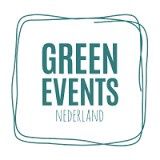 because it fits the requirements of all aggregates normally used at festivals. For GoodFuels festivals are not important for the quantity of products that they need, in this sense is air travel more interesting, but because they are open to innovation and can function as a real-life lab where innovative solutions van be tested. GoodFuels recognizes that their biofuel is more expensive than traditional gasoline, but by helping their client with energy reduction they hope to compensate for these costs. GoodFuels is not an expert in energy reduction, and therefore they started collaboration with a young company called 'stroomplan.nl'. The specialism of Stroomplan is energy plans optimization. Stroomplan was able to decrease the fuel use during Denkmantel from 10,500 liter in 2015 to 7,525 liters in 2016 notwithstanding the growth of the festival itself in terms of visitors and catering. CO2 emissions were reduced from almost 44,000 kg to 2,600 kg: a reduction of 93%. Financial costs staid almost the same, a bit less than 11,000 euro, due to the fact that biofuel is more expensive than traditional gasoline.
because it fits the requirements of all aggregates normally used at festivals. For GoodFuels festivals are not important for the quantity of products that they need, in this sense is air travel more interesting, but because they are open to innovation and can function as a real-life lab where innovative solutions van be tested. GoodFuels recognizes that their biofuel is more expensive than traditional gasoline, but by helping their client with energy reduction they hope to compensate for these costs. GoodFuels is not an expert in energy reduction, and therefore they started collaboration with a young company called 'stroomplan.nl'. The specialism of Stroomplan is energy plans optimization. Stroomplan was able to decrease the fuel use during Denkmantel from 10,500 liter in 2015 to 7,525 liters in 2016 notwithstanding the growth of the festival itself in terms of visitors and catering. CO2 emissions were reduced from almost 44,000 kg to 2,600 kg: a reduction of 93%. Financial costs staid almost the same, a bit less than 11,000 euro, due to the fact that biofuel is more expensive than traditional gasoline.
Beyond all the technical talk, that is not my cup of tea, what most impressed me is that the three organizations that presented during the workshop (Denkmantel, Stroomplan and GoodFuels) were adamantine that without collaboration no sustainable, long term energy solution is possible. Why? Because sustainability problems are by definition multidisciplinary, and therefore they need experts who are able to combine theory and practice and who are able to look further than the boundaries of their own discipline.

Our presentation was a kind of cameo inside the 'Green Deal waste free festivals' presentation. Is a waste free festival an illusion? The people behind Innofest and GreenEvents Nederland believe that it is possible to reduce the amount of waste on festivals until no waste is achieved. Until waste is still an issue, then the strategy is to recycle and reuse it.
After this intro, three festivals presented actions that they are tacking to tackle waste. First to take the floor was Milan Meyberg, revolution manager at DGTL (Digital) Festival. His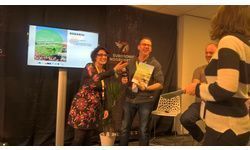 job, he told us, is to assure that the festival is as clean as possible and to devise innovative, fun solutions to get to this goal. Digital Festival greets 40,000 visitors in two days. An impressive amount of people who wish to enjoy, to eat and to drink, and who leaves a huge amount of (plastic) waste behind. In an effort to reduce plastic waste, this year Digital Festival introduced a hard cup system instead of disposable cups. To assure that people reused their cup, a deposit system was devised. In other words, Digital Festival used a gain approach to get people to show pro-environmental behavior. Digital Festival recognizes that there were some drawbacks of the system, such as increased transport because they decided to clean the cups outside the festivals premises. On the positive side the festival achieved a reduction of waste by 90% and the festival site was much cleaner resulting in increased visitors' satisfaction.
job, he told us, is to assure that the festival is as clean as possible and to devise innovative, fun solutions to get to this goal. Digital Festival greets 40,000 visitors in two days. An impressive amount of people who wish to enjoy, to eat and to drink, and who leaves a huge amount of (plastic) waste behind. In an effort to reduce plastic waste, this year Digital Festival introduced a hard cup system instead of disposable cups. To assure that people reused their cup, a deposit system was devised. In other words, Digital Festival used a gain approach to get people to show pro-environmental behavior. Digital Festival recognizes that there were some drawbacks of the system, such as increased transport because they decided to clean the cups outside the festivals premises. On the positive side the festival achieved a reduction of waste by 90% and the festival site was much cleaner resulting in increased visitors' satisfaction.
Jeske Eekelaar, volunteer coordinator at Mysteryland, highlighted the cooperation between Greenpeace and this festival to reduce waste by for example approaching people at the entrance and helping them to set up their tent. In this way the volunteers made friends and got respect. Later on, it was easier to ask the visitors to keep the festival grounds clean. In this case, I thought, clearly a reciprocation strategy was used to encourage pro-environmental behavior.
Tijl Couzij represented LAB Vlieland and illustrated his work for this island main festival: Into the Great Wide Open. Aim was to introduce waste separation, and use food waste to make organic fertilizer. In this way food waste had not to be brought ashore to be burnt while fertilizers had to be brought to the island. The organic fertilizer obtained by composting the 2015 festival food waste was used to grow herbs that in their turn were used to make tea during the 2016 edition of the festival. The tea was then sold to the visitors - closing the chain.
Finally, it was our turn. After a short introduction on the project and jt focus in cigarette butts, Marisa de Brito, the project leader of CELTH Sustainable Strategies of Events, presented Laura van de Voort and Paul Schurink from GreenEvents with the project report.
Concluding the section, Paul insisted that waste is a resource and therefore we should not speak any more of waste free festival but of resou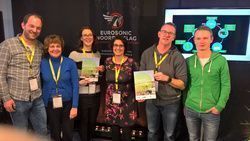 rce rich festivals. The message all along this section was again cooperation: cooperation among festivals, but also between festivals and universities of applied sciences.
rce rich festivals. The message all along this section was again cooperation: cooperation among festivals, but also between festivals and universities of applied sciences.
The room, with 30 seats, was full. People had to stand. This just to signal how important is the waste theme for festivals.
Are you curios about our project? The CELTH projects results will be presented at Stenden on Thursday the 19th of January 2017. You are all invited. The program is below:



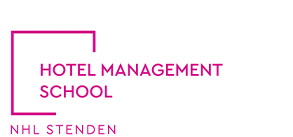
 Back to overview
Back to overview
